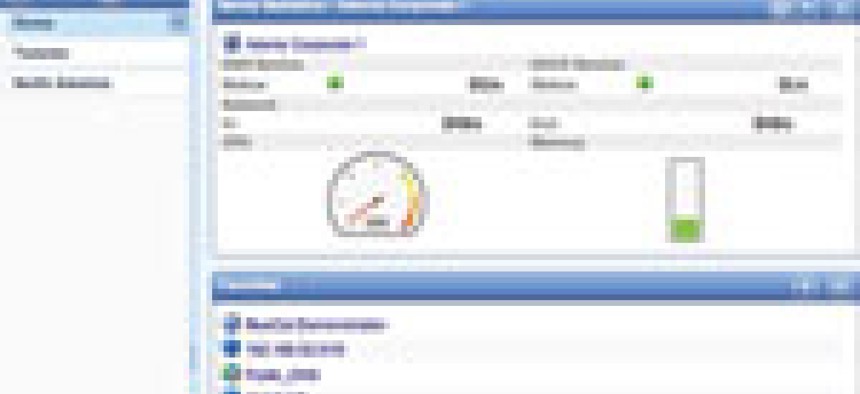BlueCat takes a swipe at IP address confusion

BlueCat Proteus can help an overburdened network administrator in nearly any environment get a handle on IP address management.
We’ve all been there. You discover some suspicious-looking network traffic and try to track it down. A look at some hard-to-read logs lets you know that the activity originated from one of your internal IP addresses: 192.168.1.163 to be precise.
Huh? Was that in the range of static IP addresses you reserved for the accounting department? Or was it being leased through one of your Dynamic Host Configuration Protocol (DHCP) servers? Or are you thinking of another subnet entirely? If your network is even moderately sized, it has way too many IP addresses to keep track of in your head.
So you pull out the tool that has been the hallmark of network administration for years: the spreadsheet containing all of the IP address information. Although this can be an adequate way to keep track of which computers or other devices are using which IP addresses, it has all the drawbacks of any static document. Namely, unless someone is tasked to constantly keep it up-to-date, the chances of it having the most current data when you need it in an emergency are pretty low.
Situations such as the one described above are why having more active and dynamic IP address management is important. This is where Proteus from BlueCat Networks comes in.
BlueCat Proteus v3.6
Performance: A
Ease of use: B
Features: A-
Value: B+
Price: $11,595
Pros: Very effective in tracking all IP addresses in an organization
Cons: A bit of a learning curve for administration
Related coverage:
With a click, employees can invite a vampire into a network
Proteus Version 3.6 can be installed on a server or virtual server, or it can arrive preinstalled in a Dell rack-mountable appliance. The version we tested was installed on a virtual server that was an instance of VMware.
We found the initial setup to be easy enough. Once the software was up and running on its virtual server, it was just a matter of setting its IP address to connect it to the network. This could be done by logging in to the command line interface. Then we could log in to the administration panel via a Web browser on a network computer.
We found the administrative interface to be laid out very well. The dashboard could be configured to show the information we wanted, and BlueCat was nice enough to put a breadcrumb trail up top so we could keep track of what section we were in.
At this point, we told Proteus what IP networks we had in use and the IPv4 blocks we were using. Proteus also handles IPv6 networks, but we decided to concentrate on seeing how it dealt with a basic IPv4 network.
It took a bit of finagling to import DHCP data from servers in our network. But after we told the Proteus where to find each one, it was able to compile their information together quite nicely. The same went for Domain Name System (DNS) information on our various DNS servers. Bluecat does sell Adonis DNS/DHCP server software that can be used in place of any services you have now. Proteus will be able to find these servers fairly automatically.
After all your IP addresses are entered or imported, Proteus can then get to work. The first thing we had it do was look for overlapping IP ranges. It’s not hard to misremember your IP addresses and set a DHCP server to lease out addresses that are already spoken for. Sometimes this only rears its ugly head when the network has heavy usage, when most of these IP addresses are being leased. Then you end up having two computers out there with the same IP address, and that causes no end of grief. Proteus can help head those problems off by highlighting where the overlaps occur.
You can even assign a specific Media Access Control address to a specific IP address. If another computer other than the one permitted tries to use that IP address, Proteus will alert you through the administration interface. Any such suspicious activity will show up on the dashboard right away.
We were very impressed with the help system that the Proteus system provided. It was contextual, and pulled up the appropriate help article depending upon what section of the administrative interface we were looking at. This is a good thing to have with a program that does so much. Not even the most dedicated administrators are going to know how it all works at first.
BlueCat Networks has set the price of the Proteus software at $11,595. This price is not bad considering how powerful a solution this is, and how important dynamic IP management can be. BlueCat also offers several appliance configurations if you have more rack space than installation time. Its Adonis DHCP/DNS server is sold separately as either software-only or appliances, and could be a welcome addition at any point in your network development cycle.
Proteus can help even the most overburdened network administrator get a handle on IP address management. It would do well in nearly any network environment. And the bigger the environment, the more useful it becomes.
BlueCat Networks, www.bluecatnetworks.com





